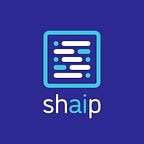How AI Will Power the Next Wave of Healthcare Innovation?
There’s no doubt that data is poised to transform healthcare like it has so many other sectors, but it’ll need a helping hand. Today, healthcare providers are collecting exabytes of patient data from hospitals, clinics, imaging and pathology labs, and more. This data contains a wealth of insight into human health, but its lack of structure and sheer volume means it’s well beyond the limits of the human ability to decipher it.
Fortunately, sophisticated AI and machine learning solutions can carry the torch of innovation.
In healthcare, the value of machine learning is its capacity for processing massive data sets that are far beyond the scope of human ability. Raw, unstructured data goes in and clinical insights come out, helping physicians plan and provide better care at a lower cost. While the sky is the limit as far as the benefits of machine learning, constructing these complex algorithms takes time. In the next five to 10 years, we expect to see medical professionals reaping the dividends of healthcare-based innovation in these areas:
Advanced image analysis: Medical professionals are highly trained, and some of their work reflects their tremendous value add. However, there’s still a need for professionals to spend time on repetitive tasks such as image analysis. In radiology, for example, doctors spend time looking at images from CT scans, MRIs, ultrasounds, PET scans, mammography, and more. AI-assisted imaging solutions are using the technology’s advanced pattern-recognition capabilities to highlight image features, identify early predictors of cancer, prioritize cases, and cut down on the volume of labor required to perform accurate diagnoses. As AI processes more and more data sets, it’s inevitable that the technology will eclipse the ability of human doctors to spot the signs of disease as early as possible.
- Disease detection: Due to its high cost, healthcare imaging generally takes place only to confirm a diagnosis. It’s an effective solution, but one that AI promises to upend and replace. By conducting an in-depth analysis of huge amounts of historical data, AI can predict the possibility of sickness or disease at incredibly early stages. For example, by looking at an entire patient population that closely matches the demographic of a specific individual in addition to the medical history of relatives, AI could conclude that a patient is very likely to develop a malady such as heart disease years before a doctor could ever accurately make a diagnosis.
- Drug discovery: We’ve all seen firsthand how important it is to design and produce effective drugs and vaccines to combat a newly discovered disease. Historically, this process has taken massive investments of time and money, with development timelines extending out to more than a decade in some cases. The ability of AI to cross-reference drugs that are known to be safe and effective and replicate parts of their formulas to suggest new iterations could be groundbreaking, potentially saving countless lives and helping to prevent the next global pandemic.
Trending AI Articles:
1. Top 5 Open-Source Machine Learning Recommender System Projects With Resources
2. Deep Learning in Self-Driving Cars
3. Generalization Technique for ML models
4. Why You Should Ditch Your In-House Training Data Tools (And Avoid Building Your Own)
3. Digital consultation: The pandemic undoubtedly spurred innovation in the telehealth space, but there’s still a long way to go to make virtual visits as effective as a physical visit to the doctor’s office. AI can help close that gap in numerous ways. Machine learning and natural language processing (NLP), for example, will help facilitate symptom collection using just a patient’s voice. Combined with an analysis of the patient’s electronic health record, AI can highlight probable health concerns for doctors to review. By processing information ahead of time, AI increases the volume of patients that doctors can handle, improves the efficacy of virtual visits, and even minimizes the risk of infection from physical interactions as a result.
At Shaip, our goal is to usher in the exciting future of healthcare innovation by supporting firms in their AI initiatives. We help organizations build and train AI and NLP models by licensing the use of more than 10 million medical data sets consisting of images, electronic health record data, and even physician speech. Our data is 100% protected health information-free, accurately annotated, and sourced from more than 60 diverse geographies, ensuring high-quality outcomes.
We also have a deep understanding of AI from the ground up, which means we can lend our experience in selecting unbiased cohorts, healthcare data annotation, and the demands of semi-supervised learning to ensure our clients’ success. For more information on the solutions Shaip can help put in place, please reach out and request a demo today.
Note: The article was originally published at Shaip: https://www.shaip.com/blog/how-ai-will-power-the-next-wave-of-healthcare-innovation/
